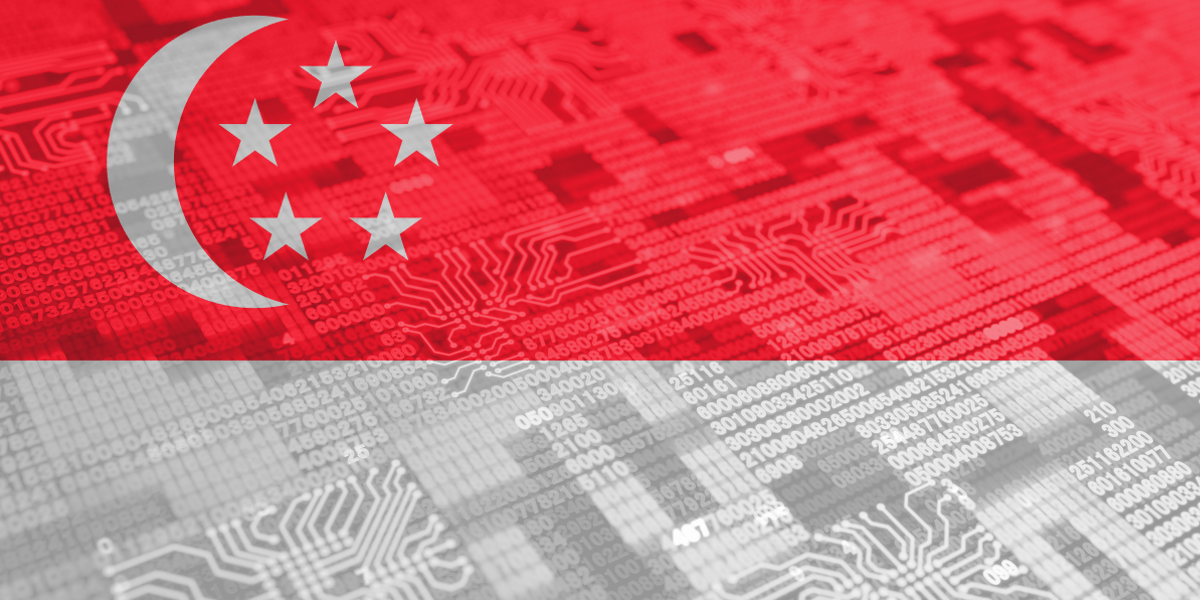In the fourth of a series of blogs from our global offices, we provide a overview of key trends in artificial intelligence in Singapore.
What is Singapore’s strategy for Artificial Intelligence?
In November 2019, Singapore launched a National Artificial Intelligence Strategy (“NAIS”) with the objective of building Singapore as a global hub for developing and deploying scalable and impactful AI solutions in key sectors of high value and relevance to its citizens and businesses.
To achieve this, Singapore is embarking on five National AI Projects in transport and logistics, smart cities and estates, healthcare, education, and safety and security. The aim is to guide investment, anchor talent in AI research and build up the supporting digital infrastructure.
Singapore has also established a National AI Office to set the national agenda for AI and partner the research community and industry to implement the NAIS.
The National Research Foundation of Singapore has launched a national AI program called AI Singapore (“AISG”), which provides information on initiatives and activities to AI innovators. The programme aims to bring together all Singapore-based research institutions, AI start-ups and companies developing AI products to encourage collaboration, high-impact research, and the development of applications of AI.
The NAIS recognises the crucial role of the intellectual property (IP) regime: innovators often need to rely on a combination of different IP rights to secure meaningful protection for their AI inventions, data and algorithms; and they need an effective IP strategy to deploy and scale AI solutions internationally. See this post for more information on AI and IP in Singapore.
What laws and regulations is Singapore developing for Artificial Intelligence?
Some existing Singapore laws and regulations provide guidance to AI.
The Model Artificial Intelligence Governance Framework by the Personal Data Protection Commission (PDPC) translates ethical principles into practical recommendations for responsible use of AI.
“Data: Engine for Growth – Implications for Competition Law, Personal Data Protection, and Intellectual Property Rights”, by the Competition and Consumer Commission Singapore, the Personal Data Protection Commission Singapore and the Intellectual Property Office of Singapore, explores the implications of the proliferation of data analytics and data sharing on competition policy and law, personal data protection regulation and intellectual property law in Singapore.
“Principles to Promote Fairness, Ethics, Accountability and Transparency (FEAT) in the Use of Artificial Intelligence and Data Analytics in Singapore’s Financial Sector”, by the Monetary Authority of Singapore (“MAS”), is a set of foundational principles on the responsible use of artificial intelligence and data analytics (“AIDA”).
The Veritas Initiative, by MAS and part of Singapore National AI Strategy, aims to enable financial institutions to evaluate their AIDA-driven solutions against the principles of FEAT.
The Personal Data Protection Act 2012 sets out the general data protection framework, including a consent-based regime to guide the collection of personal data for the purpose of big data analytics.
The Data Collaboratives Programme (DCP), developed by the Infocomm Media Development Authority (IMDA), includes a Trusted Data Sharing Framework to establish a baseline “common data sharing language” and a systematic approach for trusted data sharing partnerships. The programme also offers a Data Regulatory Sandbox to businesses and their data partners to explore and pilot innovative use of data in a safe environment.
The Cybersecurity Act 2018 is a legal framework for the oversight and maintenance of national cybersecurity in Singapore.
The Protection from Online Falsehoods and Manipulation Act (POFMA) 2019 seeks to counter online falsehoods.
The Road Traffic (Autonomous Motor Vehicles) Rules 2017 and Technical Reference 68 for autonomous vehicles (2019) include provisions relating autonomous vehicles.
What are the leading Singapore research institutes and companies for Artificial Intelligence?
Research institutes and universities in Singapore are working hard to put Singapore on world AI research map:
Nanyang Technological University Singapore (NTU Singapore): NTU and Alibaba Group officially launched the Alibaba-NTU Singapore Joint Research Institute (JRI) in February 2018. This is Alibaba’s first research institute on AI outside China. The JRI seeks to combine NTU’s human-centred AI technology which has been applied to areas such as health, ageing, homes and communities, with Alibaba’s leading technologies including Natural Language Processing (NLP), computer vision, machine learning and cloud computing to explore further technology breakthroughs and real-life AI solutions.
National University of Singapore has launched the Centre on AI Technology for Humankind (AiTH) on 23 April 2020. AiTH champions a behavioural human-centred approach: where AI is designed and employed in ways that are experienced as genuinely supporting and complementary to human endeavours.
At Agency of Science, Technology and Research (A*STAR), Artificial Intelligence Analytics & Informatics (AI3) coordinates and catalyses the development and application of A*STAR’s data science and AI capabilities for Singapore’s economic and societal needs. In 2021, A*STAR also formed the A*STAR Centre for Frontier AI Research (CFAR), which aims to advance use-inspired basic research in AI within the broader scientific community of A*STAR.
In addition, top Artificial Intelligence companies in Singapore include (based on platforms such as Clutch and the Manifest):
Techddy Solution
QDS
Slash
Unified Inbox
Tongdun
Addo
ActiveWizards
Brights
Smart Consulting Solutions
TurnKey Lender
6Estates
Pirimid Fintech
Blink Technologies
Potado
AsiaPac
HRForecast
FromLabs
Intrepid Technology
Sixvertex Software
Tech Minda Inc
Digitall Creations
Datanet Studio
S3 Group Asia
Active.ai
Spritle Software
51VR
DV8 Infosystems
Apparrant Technologies
Smart Source Technologies
Coders.Dev
Kyanon Digital
Neutrinos
Dynatrace
WonderLabs Ukraine
Absolutdata Analytics
Manush Technologies
Gramener Technology Solutions
GoPomelo
Celebal Technologies
Everise
Where to get advice on Artificial Intelligence law and regulation
Gowling WLG has a global team of lawyers advising on all aspects of AI law and regulation. See our service page on Artificial Intelligence (AI) Law for more details.
About the author(s)
Vivian Wei Cheng is a Patent Attorney at JurisAsia LLC. Being a Singapore registered patent agent with a technical background in biological science and clinical medicine, Vivian manages multi-jurisdictional patent drafting and prosecution focusing on biotechnology, pharmaceuticals, diagnostics, nano-materials, immunology, consumer care products, agriculture and food products and medical devices. She also provides business-focused strategic advice on intellectual property (IP) portfolio and risk management in various fields including Artificial Intelligence (AI), as well as litigation support.

